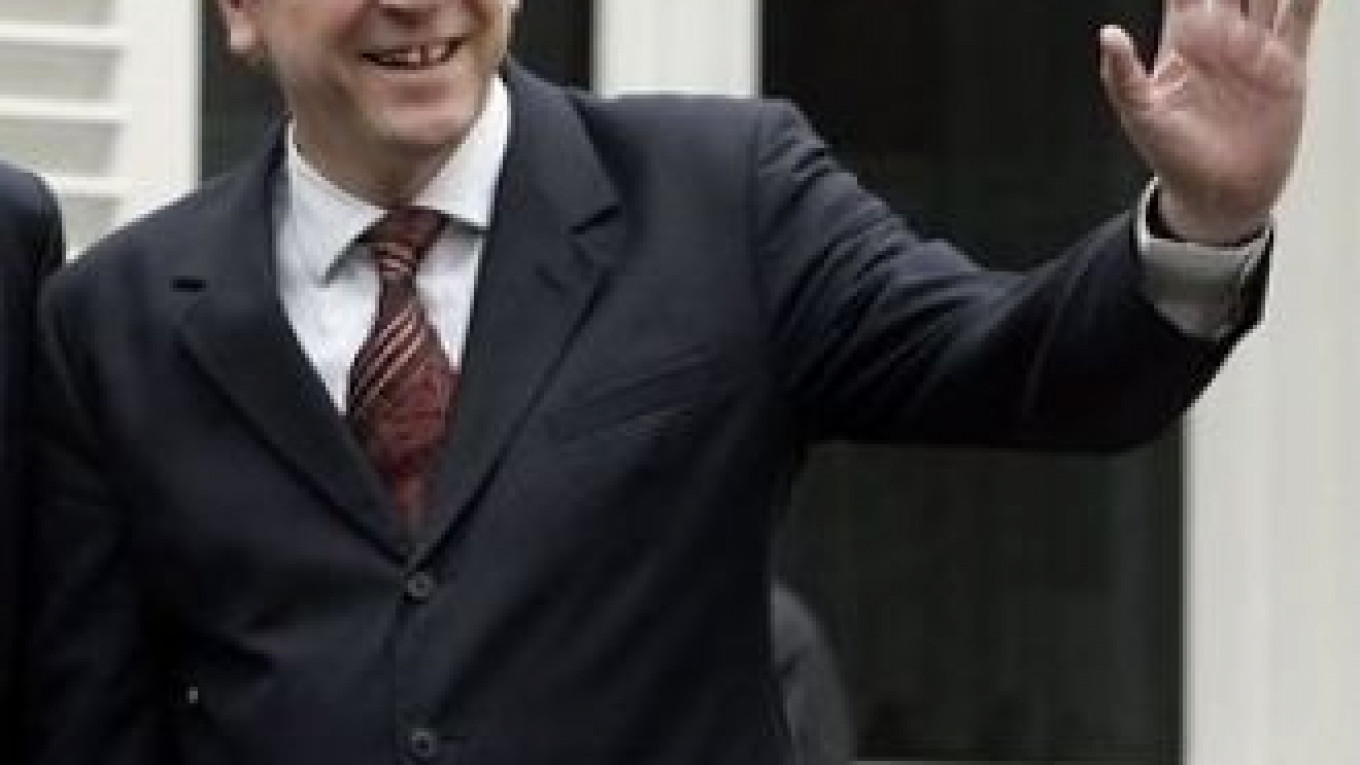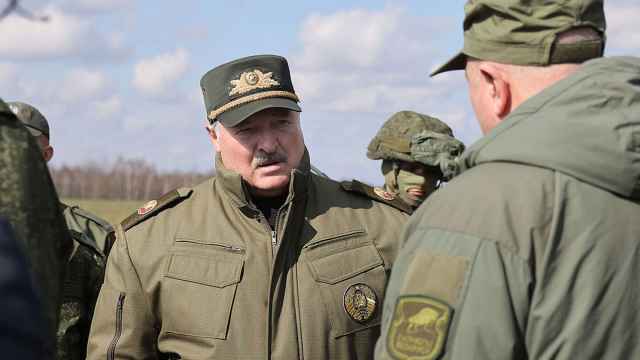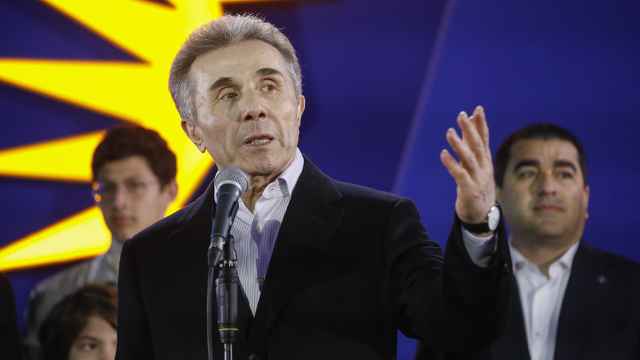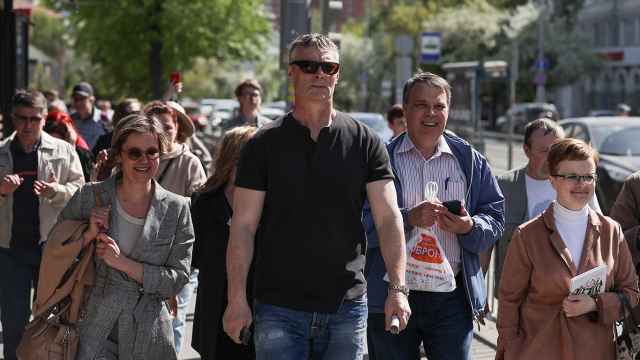Buoyed by the U.S. Senate's endorsement of the Magnitsky Act, Russian opposition leaders and some European lawmakers are calling on the European Union to adopt similar legislation that punishes presumed human rights offenders.
Mikhail Kasyanov, Vladimir Ryzhkov and Boris Nemtsov, the chairmen of the "Republican Party of Russia — Party of People's Freedom," or RPR-Parnas, on Friday urged Europe to introduce its own Magnitsky list of officials who would be denied entry and would face asset freezes, among other penalties.
They were speaking at a conference organized jointly with the Alliance of Liberals and Democrats in Europe, or ALDE, the key centrist political group in the European Parliament.
ALDE chairman Guy Verhofstadt said that there is cross-party support for a Magnitsky list in the European Parliament and that this proves that the EU is less divided on the issue than in months past.
"The EU is closer to a common position on Russia than ever before," he said at the conference.
In October, the European Parliament passed a resolution calling on the European Council, the EU's top body, to come up with its own Magnitsky list.
Sergei Magnitsky, who died after a beating by prison guards, was a tax lawyer jailed by investigators he had accused of embezzling millions of dollars from the Russian government.
However, most of the bloc's 27 countries had previously expressed little interest in following Washington's example, saying it would do more harm than good. Analysts have explained this stance by pointing to the trade ties that link Europe with Russia, ties that are much closer than those between the U.S. and Russia.
Some observers now say the situation is changing, especially since the largest EU member country, Germany, has seemingly revised its view that confronting the Kremlin would only hurt ties.
The German Bundestag passed a motion in October that harshly criticized this year's crackdown on the political opposition in Moscow. Last month, Chancellor Angela Merkel openly addressed growing democratic deficits during Kremlin talks with President Vladimir Putin.
Veteran rights campaigner Lyudmila Alexeyeva told The Moscow Times at the conference that a large number of European states are reconsidering their position. "The mood is changing," she said.
Silvana Koch-Mehrin, a German member of the European Parliament and ALDE, said change could come quickly.
"If this is raised in EU ministerial talks, it could [lead to legislation] very fast if there is a dynamic," she said on the sidelines of the conference.
Observers have said that wide-ranging sanctions like those in the Magnitsky Act will be hard to agree on at the EU level, given the bloc's past disagreements over Russia.
But they say travel bans can happen quickly because the rules of the Schengen zone stipulate that once an individual is barred from entering the 25-member border-free zone, he is barred from all of them.
Koch-Mehrin, however, said that the EU would focus more on economic policy to deal with Russia, similar to what the bloc did during talks over Russia's World Trade Organization membership in Geneva. Russia joined the WTO in August.
Koch-Mehrin also said it was important that policy changes in Russia come from inside the country. "We should not be seen as imposing reforms or meddling in internal affairs," she said.
Related articles:
A Message from The Moscow Times:
Dear readers,
We are facing unprecedented challenges. Russia's Prosecutor General's Office has designated The Moscow Times as an "undesirable" organization, criminalizing our work and putting our staff at risk of prosecution. This follows our earlier unjust labeling as a "foreign agent."
These actions are direct attempts to silence independent journalism in Russia. The authorities claim our work "discredits the decisions of the Russian leadership." We see things differently: we strive to provide accurate, unbiased reporting on Russia.
We, the journalists of The Moscow Times, refuse to be silenced. But to continue our work, we need your help.
Your support, no matter how small, makes a world of difference. If you can, please support us monthly starting from just $2. It's quick to set up, and every contribution makes a significant impact.
By supporting The Moscow Times, you're defending open, independent journalism in the face of repression. Thank you for standing with us.
Remind me later.







